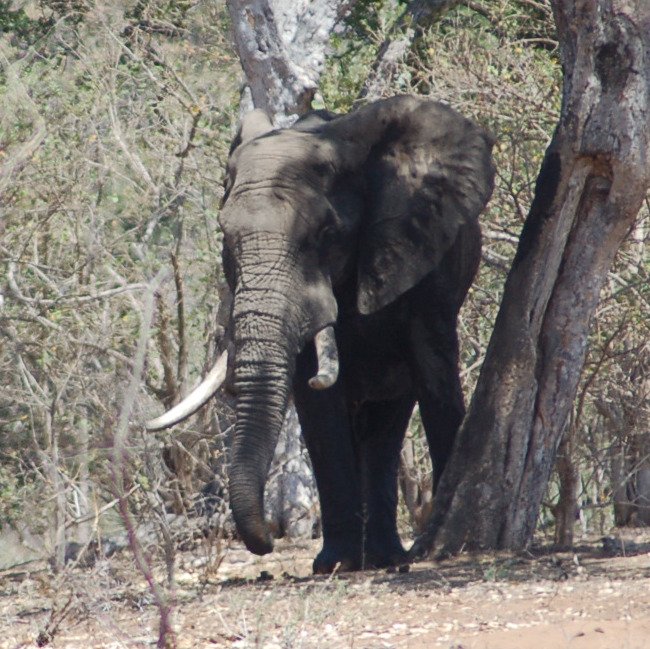For Immediate Release, March 29, 2024
|
Contact: |
Tanya Sanerib, (206) 379-7363, tsanerib@biologicaldiversity.org |
U.S. Tightens African Elephant Import Rules, Stops Short of Banning Trade
Agency Bows to Trophy Hunter Concerns
WASHINGTON— The U.S. Fish and Wildlife Service today adopted new restrictions on U.S. imports of African elephant hunting trophies and live elephants but stopped short of a total ban on imports.
Bowing to trophy hunter concerns, the agency also backtracked from its earlier proposal. Today’s rule allows any biologically sustainable trade instead of requiring that elephant populations be stable or increasing before trophy trade is permitted — a major step back from true conservation accountability.
“I’m truly crushed this rule doesn’t ban trade in elephant hunting trophies to the United States, and it doesn’t even require stable elephant populations to allow trophy imports,” said Tanya Sanerib, international legal director at the Center for Biological Diversity. “These magnificent animals are globally cherished but under threat, and it's high time we stop letting wealthy trophy hunters turn them into décor.”
Today’s updated rule only allows trophy and live elephant imports from countries that annually certify their elephant populations are biologically sustainable and that viable elephant habitat is not decreasing. Countries will also be required to have adequate conservation legislation in place and being implemented — but that provision doesn’t kick in until 2026.
The United States is a major importer of hunting trophies globally, along with the European Union.
Today’s restrictions tighten the 4(d) rule for African elephants under the Endangered Species Act, which determines what protections the species receives. The new rule will foreclose elephant trophy and live imports from nations whose domestic wildlife laws fail to meet the requirements of the Convention on International Trade in Endangered Species, or CITES, but not until 2026.
Of the countries that export trophies to the United States, Botswana, Mozambique and Zambia currently have national legislation that may not meet the requirements of CITES. These countries now have additional time to improve their legislation.
In 2016 the Obama administration implemented a near ban on the domestic trade in elephant ivory. Although that regulation provided some exceptions, it virtually closed the U.S. ivory market as part of an agreement with China, which closed its own domestic ivory market at the end of 2019. The revisions announced today do not address the ivory trade.
“We face a devastating biodiversity crisis that requires an elephant-sized response,” said Tanya Sanerib, international legal director at the Center for Biological Diversity. “These are mouse-sized rule changes that continue to treat elephants like commodities. We need global change that prioritizes biodiversity over profits.”
The rule revisions follow the International Union for Conservation of Nature’s 2020 reassessment of elephants, which found that forest elephants are critically endangered and savannah elephants are endangered. Unlike the IUCN, however, the rule fails to recognize forest and savannah African elephants as distinct, despite a petition by the Center urging the Service to acknowledge the split.

The Center for Biological Diversity is a national, nonprofit conservation organization with more than 1.7 million members and online activists dedicated to the protection of endangered species and wild places.

